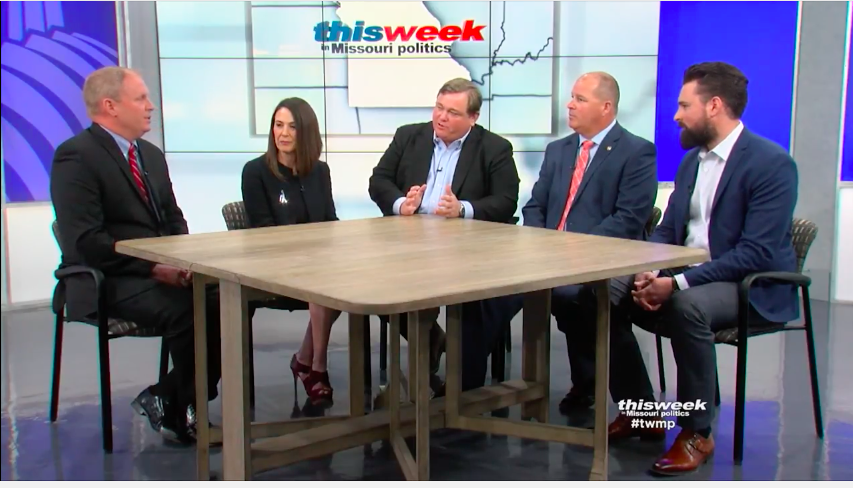KANSAS CITY, Mo. – On Sunday, March 26, panelists Fred Dreiling, principal of Fred Dreiling, LLC, Independence Mayor Eileen Weir, Travis Smith, the vice president of Axiom Strategies, and Rep. Dan Houx, R-Warrensburg, were invited on This Week in Missouri Politics to speak on major pieces of legislation as well as their opinion on the current state of Missouri politics.
Discussed were the topics of right-to-work, the possibility of repealing prevailing wage laws, changes to the Missouri Plan for court judges, the state budget situation and which Republican might run against U.S. Sen. Claire McCaskill. But what was most notably mentioned was the lack of ethics reform in regards to the Senate.
The first bill that was put out by the Missouri House of Representatives in the latest session was a lobbyist gift ban bill. This proposal would keep elected officials from accepting gifts presented to them on behalf of lobbyists. While the bill was passed in the House, it has found some difficulty getting through the Senate.
The bill and its measures were promoted by Gov. Eric Greitens in an attempt to help make changes to ethics reform within Missouri government. Some say that postponing the measure only creates a degree of animosity between the Governor, the Senate, and lobbyists inside local government.
“I believe there is some animosity within the Senate about the governor calling them crooked and corrupt when he has some money out there that hasn’t been accounted for,” Dreiling said.
Adding on to Dreiling’s statement, Weir highlighted why people would support the bill and its merits, but she also spoke to the tension that it created.
“I don’t think anyone’s unhappy to see it being looked at and the changes that are made,” Weir said. “But I do think that it tends to get a little personal and people do feel like they’re under attack, both elected officials and lobbyists.”
Weir also mentioned the belief held by voters that from afar, politics might seem easily corruptible or extremely partisan, although she was quick to dismiss such stereotypes, citing that a majority of those in local government are genuine in wanting to see their community prosper. But she also agreed with Dreiling when speaking of the governor and his resistance to revealing some of his own sources which might make many of his peers uneasy.
Houx also spoke to that sentiment, stating that he was a believer in transparency and voiced his worries as the governor would continue to push ethics reform without addressing undisclosed money.
Dreiling continued by expressing his belief that the term-limited senators might propose the very restrictions the governor might disagree with.
“There definitely is some animosity between the Governor’s office and the Senate right now on that issue,” Dreiling said.
Although the panelists were able to address the conflict between the governor and the Senate, they all came to the conclusion that the governor would still be able to compromise if he needed to.
Finally, they all the spoke to that fact that a majority of voters may not even be concerned with ethics reform. According to Smith, someone who has poll tested this issue, some voters certainly care about where donations come from but not as nearly as one would think.
Together the panelists came to the conclusion that media more or less dictates what is important and what is not, influencing many potential voters.
“If some of these (issues) do get passed in Jefferson City, legislators and their political teams need to do a good job of messaging them correctly,” Smith concluded.




